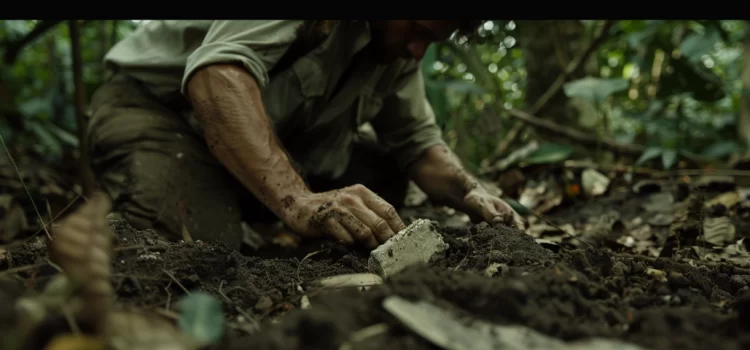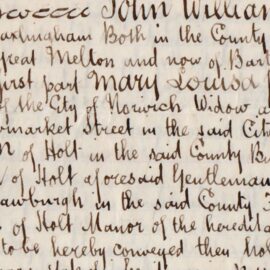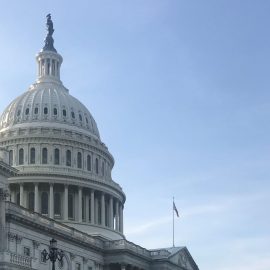
What is the “City of Z”? Why led Percy Fawcett to believe in its existence? How did he fund his expeditions?
In the late 1800s/early 1900s, a British explorer named Percy Fawcett was convinced that there was a lost Amazon civilization, and he was determined to find it. However, he struggled to secure the funds for his expedition due to skepticism and rivals.
Here’s why Fawcett believed the City of Z existed and how he funded his expeditions, according to The City of Z by David Grann.
The Allure of Lost Civilizations
Throughout history, explorers have been captivated by the idea of uncovering hidden civilizations in the world’s uncharted territories. Percy Harrison Fawcett was no exception. He firmly believed that a lost Amazon civilization lay hidden deep within the rainforest. Fawcett’s quest for the mythical ‘City of Z’ challenged the beliefs of his time and led him through uncertainty, limited support, and intense competition.
Evidence of an Advanced Civilization
Fawcett’s theory about a concealed Amazonian civilization was shaped by a combination of historical accounts from early conquistadors, his own observations, and studies of indigenous communities. He gathered evidence supporting the existence of an undiscovered civilization, including artifacts, petroglyphs, and stories from native inhabitants.
His experiences in Ceylon (now Sri Lanka), where he witnessed the remnants of ancient temples and cities, reinforced his belief that advanced civilizations could rise and later be swallowed up by the encroaching jungle. Drawing on his encounters with historically significant sites like Anuradhapura, Fawcett hypothesized that thriving societies might have also disappeared in the dense Amazon rainforest.
Fawcett’s conviction grew stronger when he found scattered evidence such as ceramic fragments and elevated pathways throughout the Amazon, indicating that pre-Columbian civilizations possessed advanced organizational and engineering capabilities. He theorized that these findings pointed to the existence of a vanished society he called ‘Z’.
(Shortform note: The belief in an advanced civilization within the Amazon is contested by some scholars who argue that the evidence is not conclusive and that the term “advanced” is subjective and may impose Western standards on Indigenous cultures.)
Challenging Prevailing Beliefs
Fawcett’s hypothesis directly challenged the commonly held belief that the Amazon rainforest was incapable of supporting large and complex societies. He was inspired by stories from explorers who described areas with dense populations and advanced agricultural practices, contradicting the mistaken notion that the Amazon couldn’t sustain sophisticated civilizations.
Overcoming Obstacles
Fawcett encountered difficulties in securing the necessary financial support and academic endorsement for his ambitious expeditions to find Z.
The scientific community’s skepticism often hindered Fawcett’s efforts to obtain funding. Despite facing doubt from established scientific circles, he was honored with a gold medal from the Royal Geographical Society, acknowledging his theories.
(Shortform note: The challenges Fawcett faced in obtaining financial backing highlight the difficulties of funding exploration, but also raise questions about the ethics of funding sources and the impact of exploration on indigenous lands and peoples.)
To ensure the success of his expedition, Fawcett gathered support from a diverse group of backers. Attracted by the region’s untapped capitalist potential, he turned to the United States for financial assistance. His campaign met with some success, gaining support from organizations like the Geographical Society and the institution dedicated to preserving Indigenous American heritage.
Rival Expeditions
Fawcett’s expeditions into the Amazon also captivated many others. The contributions of Alexander Hamilton Rice, a wealthy businessman and explorer, significantly advanced the discoveries but also intensified the competitive atmosphere. Rice, a well-funded rival from an affluent background, had the advantage of using cutting-edge equipment and technologies for his expeditions, such as airplanes and radios, highlighting the stark contrast in resources compared to Fawcett’s more modest means.
(Shortform note: The rivalry with explorers like Alexander Hamilton Rice may have been heightened, but it is also possible that such narratives of competition are exaggerated and do not fully represent the collaborative or independent aspects of their respective expeditions.)
Unwavering Determination
Despite the numerous challenges he faced, Fawcett’s determination never wavered. He relentlessly pursued the mapping of the Amazon’s unexplored regions and remained steadfast in his belief that an ancient, advanced society he called Z had once existed.
The explorer’s unwavering dedication and persistent efforts, combined with the emergence of new evidence over time suggesting significant human influence on the Amazonian landscape, reinforced the idea that the jungle could have once been home to large and complex societies. Although not fully proven during his lifetime, Fawcett’s theories and expeditions ultimately paved the way for new perspectives on the Amazon region’s historical potential to support a sophisticated civilization.






